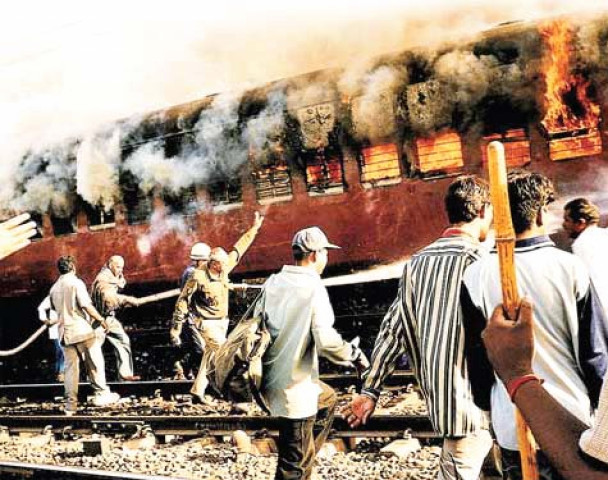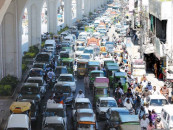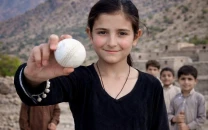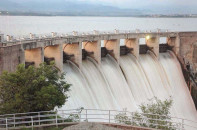Nine years on, Indian court convicts 31 in Godhra case
A court in Gujarat convicts 31 people and acquits another 63 in connection with the burning of the Sabarmati Express.

Public prosecutor JM Panchal said that the court had found 31 people guilty of conspiring to torch the train – an attack that led to deadly Hindu-Muslim riots in the state of Gujarat and claimed up to 2,500 lives.
The court ruling upheld the state police’s primary claim that there was a pre-planned conspiracy to set the train carrying kar sewaks on fire. But the acquittal of 63 people raised serious questions about the prosecution’s claim of having a watertight conspiracy case against the accused.
Among those acquitted were Maulana Hussain Umarji, who was accused by the police of being the alleged mastermind of the Godhra blast, local politician Mohammad Kalota, lawyer Abdul Karim Shaikh and businessman Razzak Dungariya.
Retired Indian Administ-rative Service (IAS) officer K S Subramanian told The Express Tribune he had been part of the investigation as an ordinary citizen but he had found no evidence of a conspiracy. “It is not easy to transport and throw 140 litres of petrol into a train,” he said. However, the Bharatiya Janata Party (BJP) which lost several cadres in the blaze, said it was happy that justice had been done.
“It was a targeted killing,” said BJP leader Prakash Javadekar. “This conspiracy was done to inflame the passions amongst the Hindus and Muslims, with the intention riots will follow and that is exactly what happened.”
“The court has accepted the conspiracy theory. It was not an accident,” said public prosecutor Panchal.
Social activist and lawyer Teesta Setalvad noted that since only a third of the accused had been found guilty “something needed to be done” for those acquitted who had been denied bail and had been incarcerated for the past nine years.
Sentences will follow on February 25 but the maximum punishment for the crimes of which they have been convicted, the accused could get anything from hanging to 20 years in prison. Both sides will appeal to the high court.
The Press Trust of India reported that all the 63 people acquitted in the train burning case were released on Tuesday evening from the Sabarmati Central Jail. “All the 63 persons, acquitted by the special court today, have been released and are on their way to Godhra,” defence lawyer Irfan Pathan told PTI.
There were several facts about the Godhra case that were puzzling and at least two commissions and Special Investigating Teams (SITs) were set up by the central government and the Supreme Court. The Forensic Science Laboratory concluded that the flammable liquid could not have been thrown inside S-6 by a mob from the outside. Railway officials and passengers present at the scene have testified that they saw no Muslim enter S-6 during the fracas which erupted at Godhra station, let alone pour more than 60 litres of petrol as the police alleges. The second forensic report stated that samples lifted from S-6 contained no traces of petroleum hydrocarbons.
Published in The Express Tribune, February 23rd, 2011.



















COMMENTS
Comments are moderated and generally will be posted if they are on-topic and not abusive.
For more information, please see our Comments FAQ